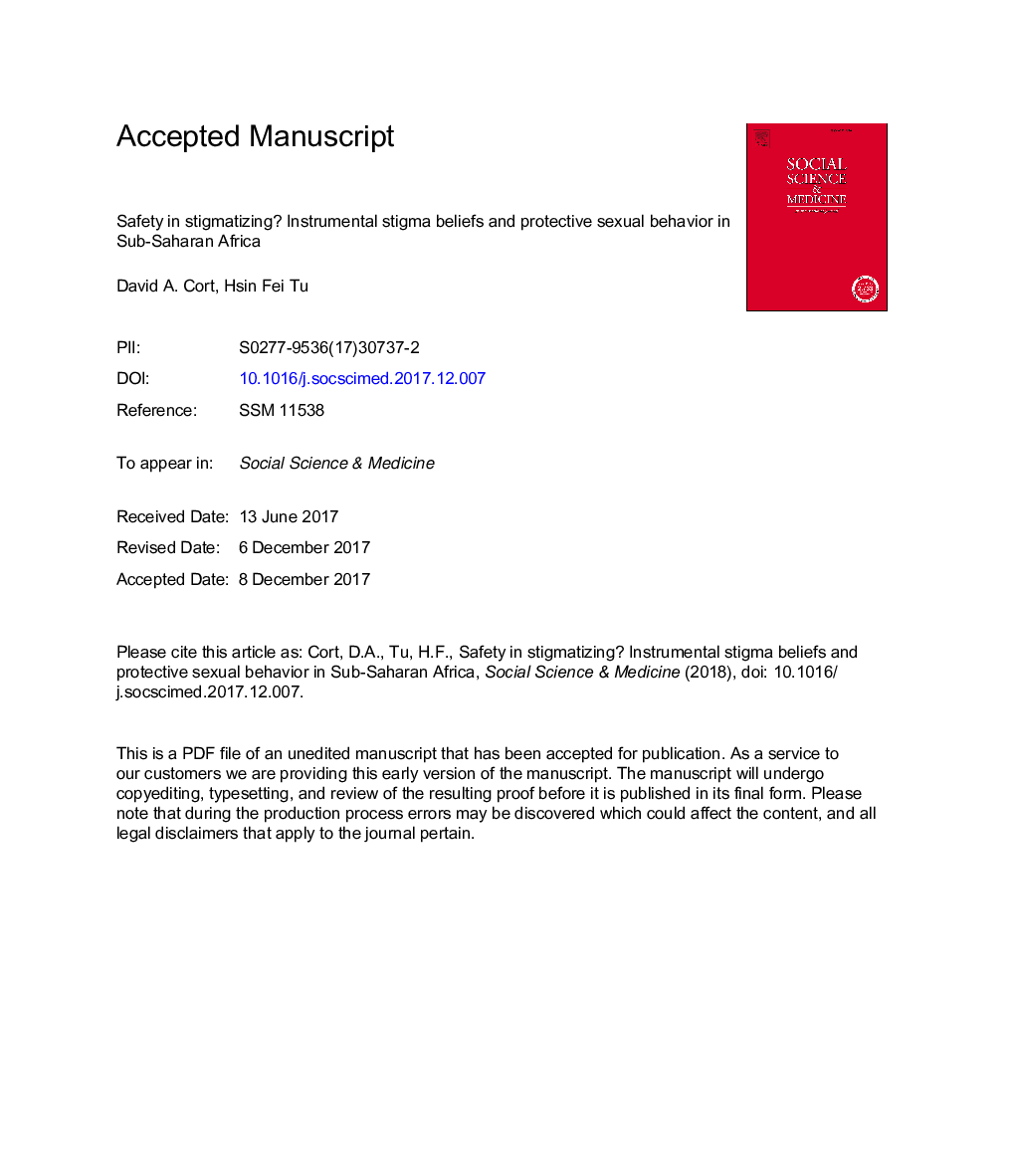| Article ID | Journal | Published Year | Pages | File Type |
|---|---|---|---|---|
| 7328744 | Social Science & Medicine | 2018 | 39 Pages |
Abstract
How are people's expression of HIV stigma beliefs connected to their own personal decisions concerning safe sexual practices? Does this relationship vary across countries and by the national context in which people reside? To answer these questions, we develop and test individual, contextual, and cross-level interactional hypotheses of the impact of instrumental HIV stigma attitudes on several measures of protective sexual behavior. Using Demographic and Health Survey data from 467,656 unpartnered individuals across 34 sub-Saharan African countries, we first find that counterintuitively, conservative HIV stigma attitudes are associated with lower likelihoods of participating in all types of protective sexual behaviors. Second, this negative relationship is most pronounced in the Southern and Eastern regions of Africa, where HIV prevalence is highest. Together, these findings suggest that stigma beliefs can shape private behaviors in counterintuitive yet important ways that have profound implications for current epidemiological and public health approaches to slowing the spread of HIV.
Related Topics
Health Sciences
Medicine and Dentistry
Public Health and Health Policy
Authors
David A. Cort, Hsin Fei Tu,
